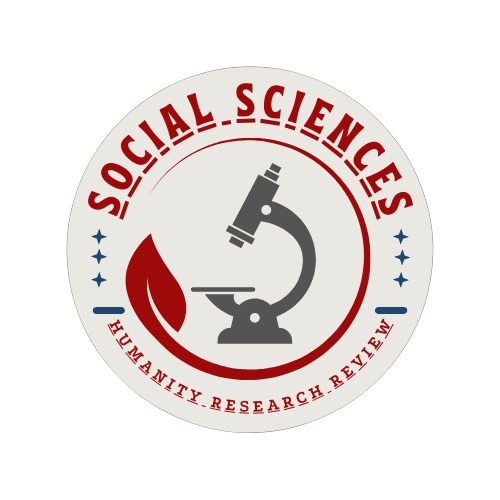
Aim and Scope
The aim of the Social Sciences & Humanity Research Review is to serve as a prominent platform for the dissemination of cutting-edge research and scholarly discourse in the fields of social sciences and humanities. With a focus on fostering interdisciplinary dialogue and advancing understanding across a diverse range of subjects, the journal seeks to publish high-quality original research, theoretical advancements, critical reviews, and methodological innovations.
Scope:
- Interdisciplinary Perspective: The journal welcomes contributions that bridge disciplinary boundaries within the social sciences and humanities, facilitating cross-fertilization of ideas and approaches. Articles that integrate insights from multiple disciplines to address complex social phenomena are particularly encouraged.
- Sociology and Anthropology: Research exploring social structures, cultural dynamics, identity formation, social movements, rituals, and practices from both historical and contemporary perspectives. Contributions may include ethnographic studies, comparative analyses, and theoretical advancements in these fields.
- Psychology and Behavioral Sciences: Investigations into human behavior, cognition, emotions, and interpersonal relationships. The journal seeks to publish empirical studies, theoretical frameworks, and applied research that shed light on psychological processes and their implications for individual and collective well-being.
- Political Science and International Relations: Analysis of political systems, governance structures, policy processes, and diplomatic relations at local, national, and global levels. Contributions may encompass empirical research, theoretical debates, and policy evaluations aimed at understanding political phenomena and addressing contemporary challenges.
- Economics and Development Studies: Research examining economic theories, market dynamics, development policies, and socio-economic inequalities. The journal welcomes empirical studies, theoretical models, and policy analyses that contribute to the advancement of economic knowledge and promote sustainable development.
- Cultural Studies and Media Studies: Exploration of cultural representations, media practices, popular culture phenomena, and their intersections with power, identity, and ideology. Contributions may include analyses of film, literature, art, digital media, and cultural movements, as well as critical engagements with media institutions and practices.
- History and Historical Studies: Investigations into historical events, processes, and narratives that shape contemporary societies and inform our understanding of the past. The journal welcomes research articles, historiographical debates, and archival studies spanning various periods, regions, and thematic areas.
- Education and Pedagogy: Scholarship on educational theories, practices, policies, and reforms aimed at improving teaching and learning outcomes. Contributions may include empirical research on educational interventions, critical reflections on pedagogical approaches, and analyses of educational systems and policies.
- Gender Studies and Diversity Studies: Examination of gender roles, identities, inequalities, and diversity dynamics within social, cultural, political, and economic contexts. The journal welcomes research that explores intersections of gender with other axes of identity, such as race, class, sexuality, and nationality.
- Methodological Innovations and Research Ethics: Reflections on research methodologies, data collection techniques, and ethical considerations in social science and humanities research. The journal encourages articles that discuss methodological challenges, innovations, and best practices, as well as reflections on research ethics and integrity.
Social Sciences & Humanity Research Review is committed to upholding rigorous standards of academic excellence, promoting inclusivity and diversity, and fostering dialogue that advances knowledge and contributes to positive societal change. Through its commitment to scholarly excellence and intellectual exchange, the journal aims to enrich academic discourse and contribute to the advancement of social sciences and humanities scholarship.





